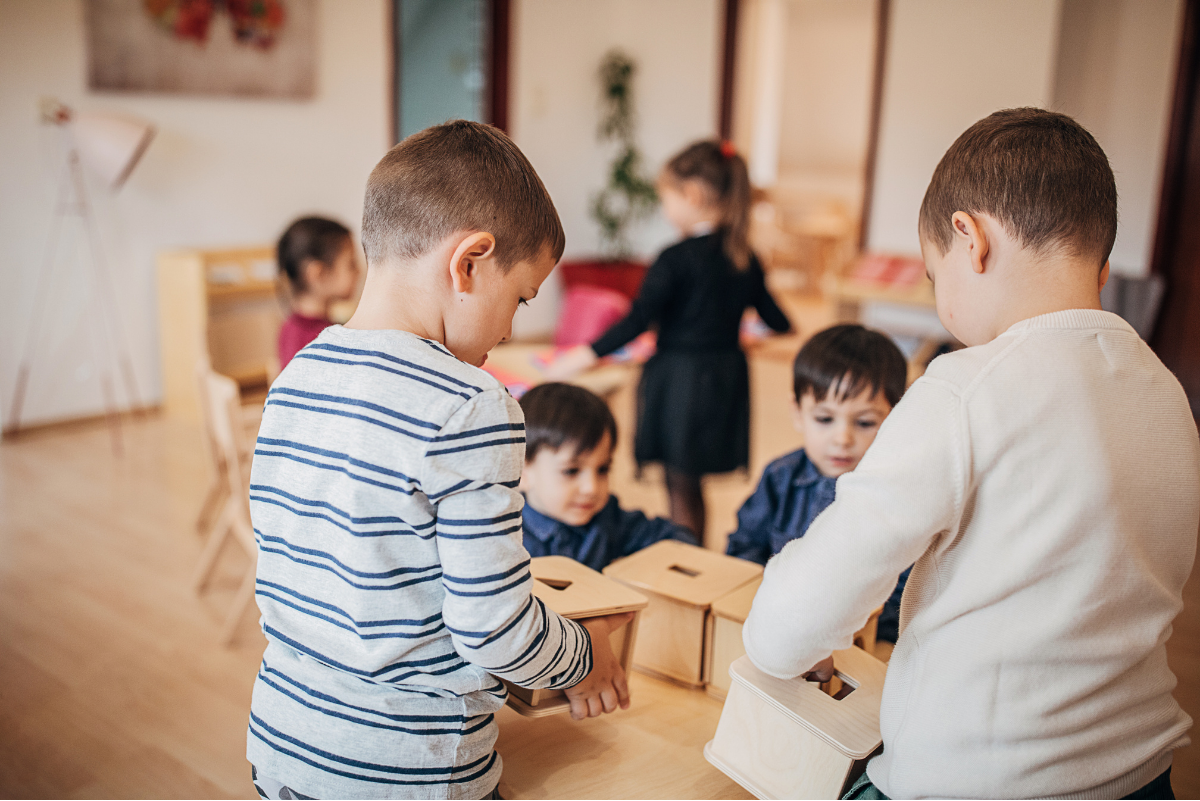
Teaching older children to mentor younger children opens a wide range of possibilities for teachable moments, growth, and friendships. Older children in a mixed-age classroom learn how to be leaders and care for others.
Transitional Periods
Mentoring between children makes for easier transitions when entering another stage of a child’s life. Older children learn to protect and mentor their younger classmates. In turn, these actions reassure the younger children. When it’s time for the younger children to become mentors, they will quickly take to the roles because they will be more prepared and more willing to pass on knowledge and acceptance.
Peer Teaching
Often children will look to their peer group to learn about unfamiliar situations. In mixed-age classrooms, the older children take on mentoring roles very easily. It is normal for peer teaching to take place without prompting.
Small children reap the benefits of mentoring when it is instigated by their peers. It is easier for them to learn the proper behavior from peer teaching than it is from adults.
Classmate Inclusion
Mixed-age classrooms provide early possibilities for learning how to behave amongst diverse groups. One of the many benefits of mentoring is the inclusion of all children. Inclusion begins a lifelong tendency to be more accepting. If children learn to accept and teach others in a different age group, they will be more likely to accept and teach others from more diverse backgrounds. The same is true for learning. If they can learn from an older child, they are more likely to learn from other diverse children.
Forming Responsible Attitudes
Mentoring allows older children to take on more responsibility and understand the significance of that term. The long-term benefits of mentoring include an instilled sense of responsibility for peers or a peer group. Leaders who are compassionate towards their classmates will go on to exhibit kindness and responsible attitudes toward their colleagues and friends.
Older children learn a sense of responsibility through mentoring that will enable them to grow up responsible adults.
Conclusion
Mixed-age classes are beneficial to both older and younger children. Mentoring between age differences is a natural occurrence and should be nurtured for lifelong continuation. Transitional periods, peer teaching, inclusion, and responsibility are essential for children to grow and learn proper behavior. Peer mentoring can ease the learning process of compassion and ensure positive future leadership experiences.





















